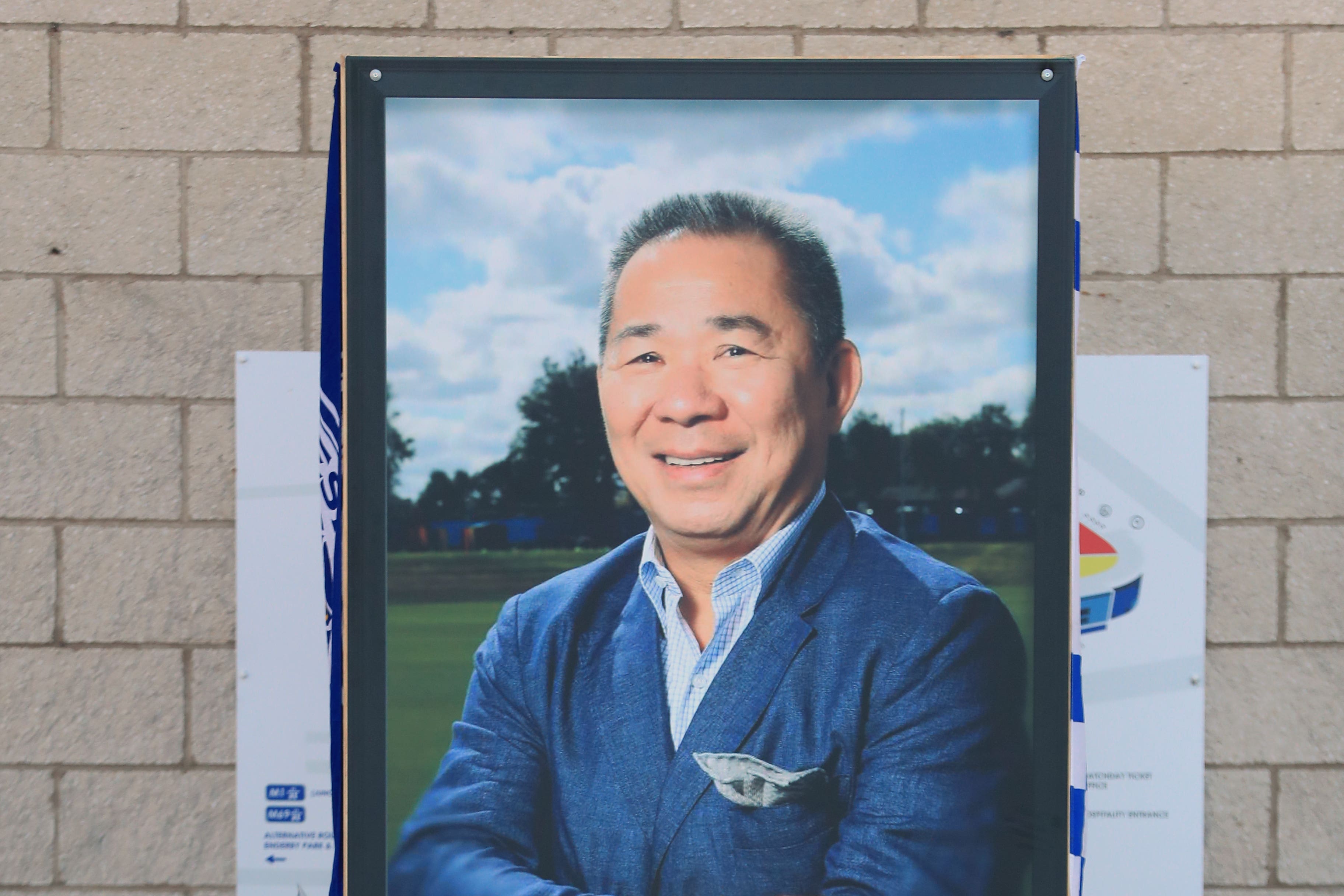Leicester City owner ‘may have survived helicopter crash if fire had not flared’
Vichai Srivaddhanaprabha was killed with four others when his helicopter crashed outside the King Power Stadium.

Your support helps us to tell the story
From reproductive rights to climate change to Big Tech, The Independent is on the ground when the story is developing. Whether it's investigating the financials of Elon Musk's pro-Trump PAC or producing our latest documentary, 'The A Word', which shines a light on the American women fighting for reproductive rights, we know how important it is to parse out the facts from the messaging.
At such a critical moment in US history, we need reporters on the ground. Your donation allows us to keep sending journalists to speak to both sides of the story.
The Independent is trusted by Americans across the entire political spectrum. And unlike many other quality news outlets, we choose not to lock Americans out of our reporting and analysis with paywalls. We believe quality journalism should be available to everyone, paid for by those who can afford it.
Your support makes all the difference.The Leicester City Football Club owner and three others who were killed in a helicopter crash outside the King Power Stadium may have survived if the aircraft had not caught fire, an inquest has heard.
Vichai Srivaddhanaprabha, referred to in court as Khun Vichai, died on October 27 2018 when his helicopter, a Leonardo AW169, spun out of control and burst into flames after crashing while it was leaving the stadium after a match.
An inquest at Leicester City Hall is also looking into the deaths of the helicopter’s pilot Eric Swaffer, his partner Izabela Lechowicz, and passengers Nusara Suknamai and Kaveporn Punpare.
During a hearing on Wednesday, a jury was told that the victims would have succumbed to the fumes “rapidly” causing them to lose consciousness.
Dr Michael Biggs, a forensic pathologist who completed post-mortem examinations for all five people, told the hearing that the cause of death for four of them, including Khun Vichai, was inhalation of smoke.
Dr Biggs told the hearing: “It was a very intense fire in an enclosed space, the occupants would have succumbed quickly to the effects of the smoke inhalation.”
The pathologist added that the four who died from the smoke also had some minor traumatic injuries, including lower spine fractures, which are consistent with “crush fractures”, but these would not have been fatal.
He said: “There is nothing of the other four individuals that inevitably would have been fatal. It is entirely possible, indeed likely, that had it not have been for the fire, they (the injuries) would have been survivable.”
Ms Lechowicz’s cause of death was given as “significant” head and chest injuries.
The pathologist said of her injuries: “In my opinion Izabela would have died extremely quickly at the point of impact due to traumatic injuries rather than this being a case of smoke inhalation after the fire started.”
He added that there was no evidence of medical incapacitation shown during the pilot’s post-mortem examination which may have contributed to the crash.
The inquest has heard that a mechanical failure in the tail rotor of the helicopter caused a bearing to “seize and lock”, making the helicopter spin out of control before it landed on its side and a significant fuel leak ignited creating a “wall of flames”.
A statement by Aiyawatt Srivaddhanaprabha, Khun Vichai’s son known as Khun Top, was read to the jury which explained that the helicopter was sometimes used to transport monks, sponsors and first-team players.
He said the helicopter, which was bought for 7.5 million euros, had been maintained by Sloane Helicopters since February 2017.
The inquest was told the helicopter had only travelled for 330 hours before the mechanical failure and was “in the early stages of its life”.
Jeremy Awenat, the managing director of Sloane Helicopters, told the inquest the crash was a “shock”.
He said: “It was a great shock to all of us in the industry, not just to Sloane. Can I extend our condolences to all the families on behalf of myself and Sloane.”
Mr Awenat told the jury that no issues had been raised about the helicopter.
He added that the helicopter had its annual inspection in June 2018, and had bi-monthly “walk around” checks, one of which took place 10 days before the crash.
The inquest, which is expected to last two to three weeks, continues.